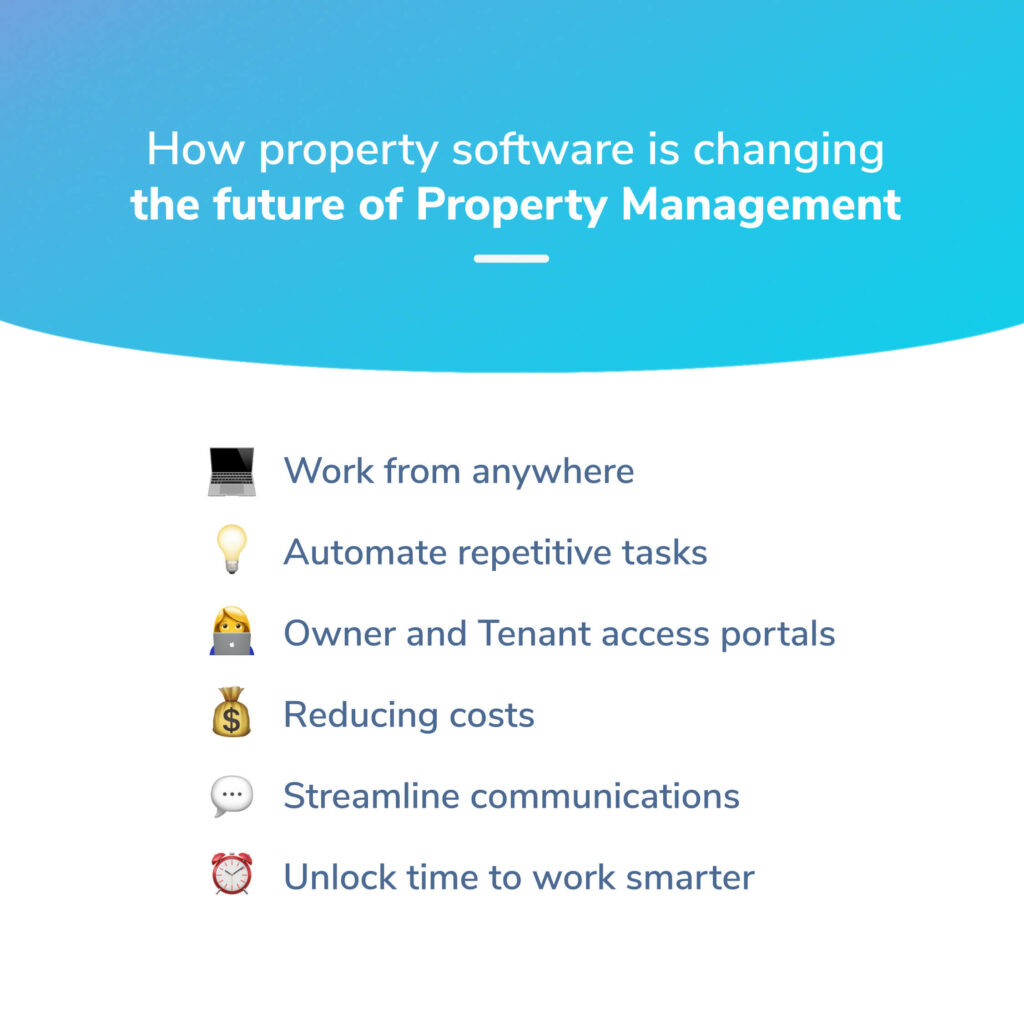October 25th, 2019
6 reasons why you need cloud property management software
Property Management
Property Management

The goal of property management software innovators has always been to improve property manager’s software experience. Over the last ten years that has most certainly been the case. Although the global pandemic had a massive effect, the digital transformation of property management was happening miles before it began.
Many years ago in property management, essential tasks and responsibilities were occasionally split up as additional services. For example, some real estate agencies would charge additional fees for things such as property inspections and lease renewals. Property managers were also overloaded, a property manager is usually responsible for roughly around 150 properties. Which, back in the day, meant a lot of paperwork, managing inspections with a physical road map, and face-to-face interviews.
Today, property management couldn’t look any more different. Let’s dive into how property software is changing the future of property management.
The most prominent change in the industry has been high-speed internet, alongside cloud-based property management software. Gone are the days of being chained to your desk to complete all of your tasks, cloud-based software has revolutionised property managers’ workflows forever.
Cloud-based software like PropertyMe meets the needs of modern property managers by bringing together the key functions of property management into one powerful cloud solution. With less time and higher stress roles, PropertyMe allows property managers to work from anywhere, on any device with internet access. Not only that, you can automate repetitive tasks, enable quick, efficient repairs and maintenance, relieve the stress of remaining compliant, reduce your costs and add-ons, and most importantly, streamline your communications.
Cloud-based software simplifies your communications channels by providing property rental apps for landlords and tenants. Provide your owners with 24/7 access to information regarding their investment property through an online portal. This gives back so much valuable time in the day, to focus your attention on further training, or bettering yourself in your role.

Contactless rental became a huge part of a property manager’s life during the COVID-19 pandemic. Without the ability to show properties, agents turned to online virtual inspection software to continue to show potential tenants the intricacies of a property in the best possible way.
Applications such as Virtual Tours Creator offer a user-friendly and efficient virtual reality (VR) walkthrough solution that caters to real estate agents and property managers. Smart view media say virtual tours increase inquiries for properties by 80% and users are likely to spend 52% longer on listings that feature 3D Tours.
Artificial intelligence has become an increasingly popular technology in recent times, especially chatbots. The introduction of Artificial Intelligence (AI) has opened the door for a lot of opportunities within the real estate industry. AI-powered bots and virtual assistants can offer property managers valuable assistance, helping to make their workload a little lighter. Examples of this being implemented are chat-bots and voice-assist services being added to websites and on phones.
Technology has grown and the property industry has slowly begun to grow alongside it. Some real estate agencies believe that trust accounts can be outsourced in place, alongside the trust accountant. They believe that trust accounts are an additional service and potential liability and removing the need for an agency to hold customers’ funds, minimises their risk.
The property management industry is currently marked by its legacy of heavy admin and accounting. With all the new developments and resources, it is likely that property managers will look to seek additional qualifications and enter the industry from other fields such as data analysis, change management, marketing, and management.
As it stands, some property managers already choose to further their career by undertaking a Certificate IV in Property Services (Real Estate) (CPP40307) or a Bachelor of Property and Real Estate. This helps property managers to build relevant, practical skills that are valued by employers and could potentially be valued over a regular Certificate of Registration.
As property management continues to evolve, it’s important to stay up-to-date with the latest technology and resources by investing in processes and solutions. With the right tools and software solutions by your side, you’ll reap incredible benefits that will streamline your processes, save you money and give you back valuable time in your day.
Thanks for reading this blog on how property software is changing the future of Property Management! You might also be interested in:
Let us know your thoughts on How property software is changing the future of Property Management by emailing [email protected].